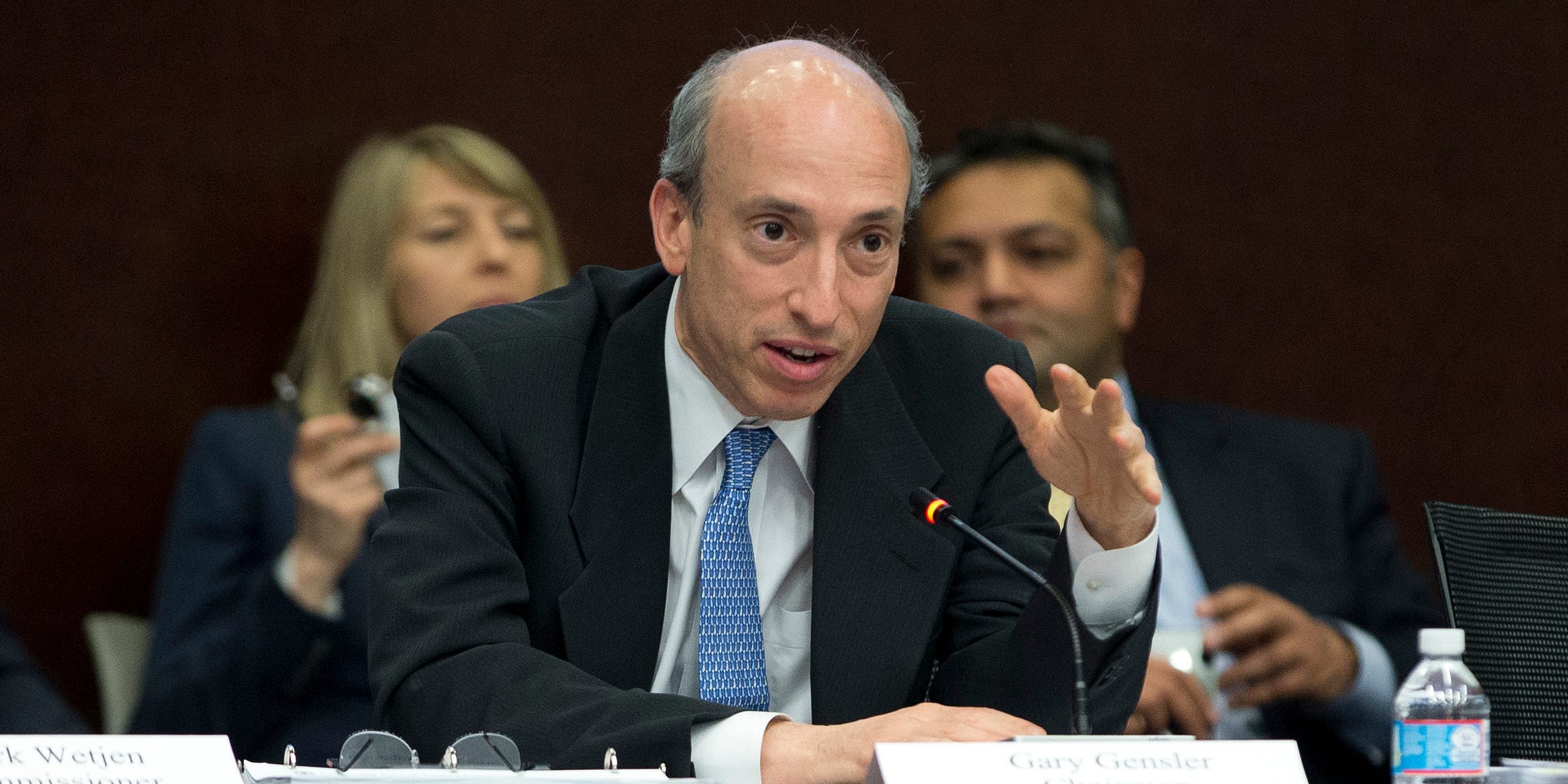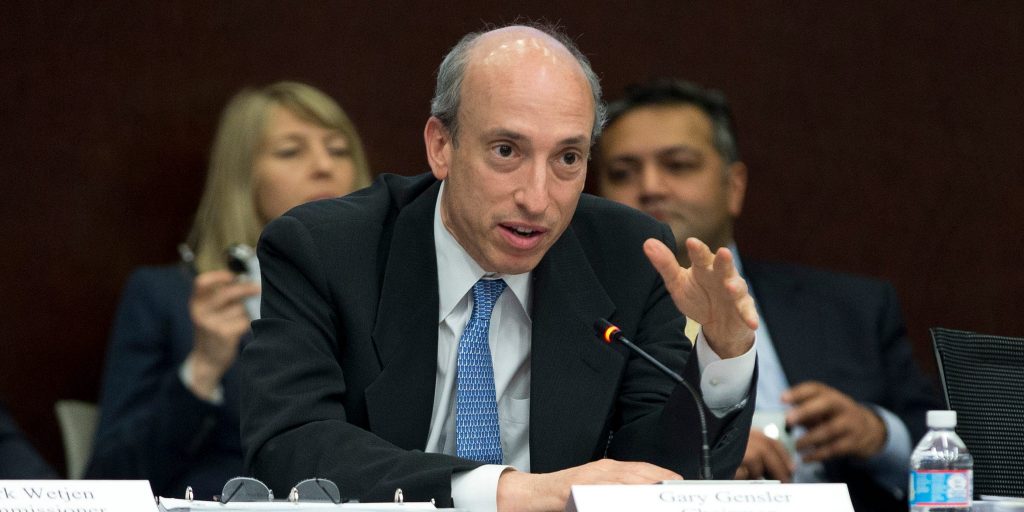
Evan Vucci/Associated Press
- The SEC will put equal access for retail investors front and center at a White House meeting on Friday, according to Yahoo Finance.
- The report said that Chairman Gary Gensler will raise the agency's focus on transparency and low-cost market access.
- Gensler will hit on the SEC's examination of the payment for order flow business model used by brokers like Robinhood.
- Sign up here for our daily newsletter, 10 Things Before the Opening Bell.
The SEC will put equal access for retail investors front and center at the White House on Friday, according to a Yahoo Finance report.
The report, citing a senior SEC official, said that Chairman Gary Gensler will raise the agency's focus on transparency and low-cost market access at the first-ever meeting of the White House Competition Council.
He will hit on the SEC's examination of the payment for order flow business model used by brokers like Robinhood. Last week, Gensler said a PFOF ban was "on the table," prompting a denunciation by Robinhood's chief legal officer that the suggested move was "draconian" and ultimately harmful to retail investors.
The White House committee, established in July, is part of Joe Biden's attempt to combat rising corporate consolidation and rekindle competition. The anti-consolidation effort is still in its early stages and leans on regulators to consider rule changes that would boost competition.
Gensler's transparency push has been wide-ranging, touching on issues like Chinese equity listings, climate, PFOF, SPACs, and crypto.
In the wake of Friday's meeting, new rules on climate risk disclosures could come this fall, according to Yahoo Finance.
In July, the SEC froze all US IPOs of Chinese companies, pending new disclosure requirements on an obscure corporate structure that Gensler fears retail investors don't widely understand. Likewise, Gensler has advocated greater investor protection in the crypto space, which he called the "Wild West."
"At about $2 trillion of value worldwide, [crypto] at the level and the nature that if it's going to have any relevance five and 10 years from now, it's going to be within a public policy framework," Gensler told the Financial Times last week.
"Finance is about trust, ultimately."
